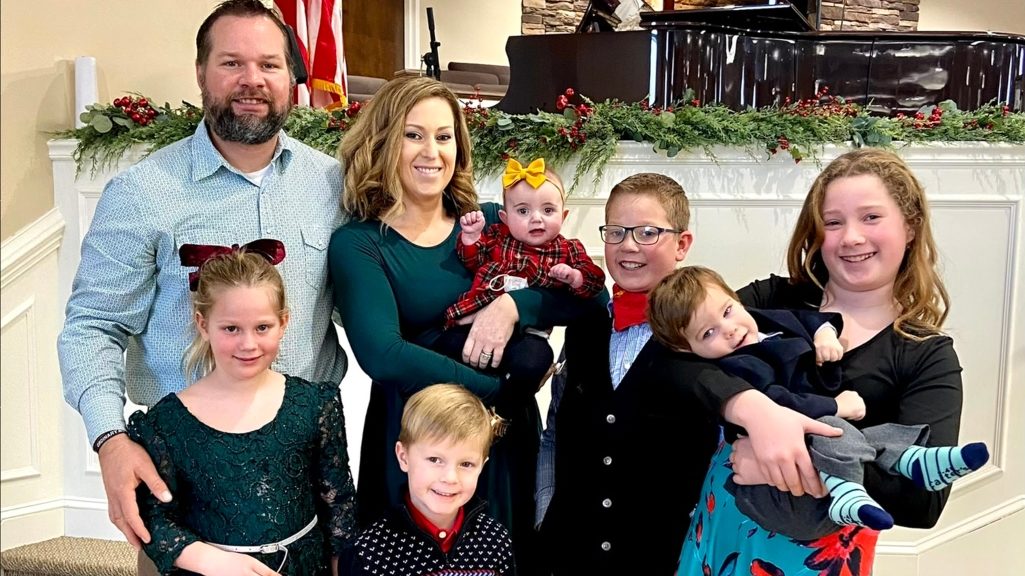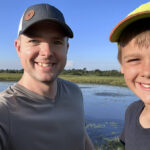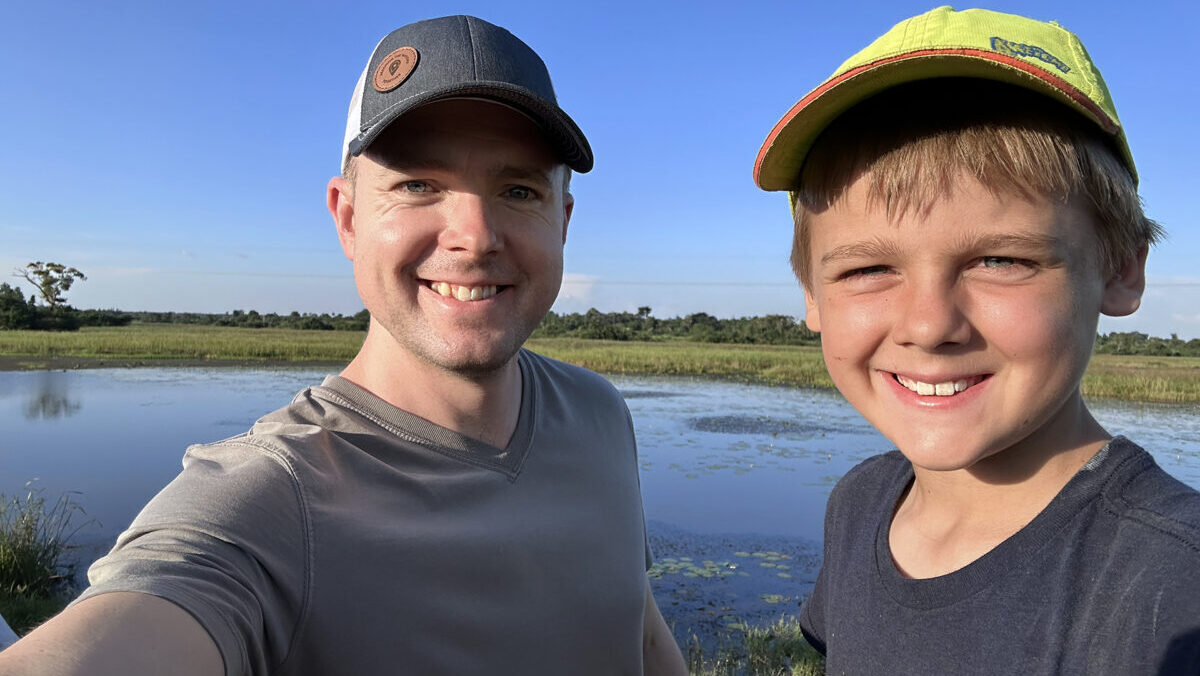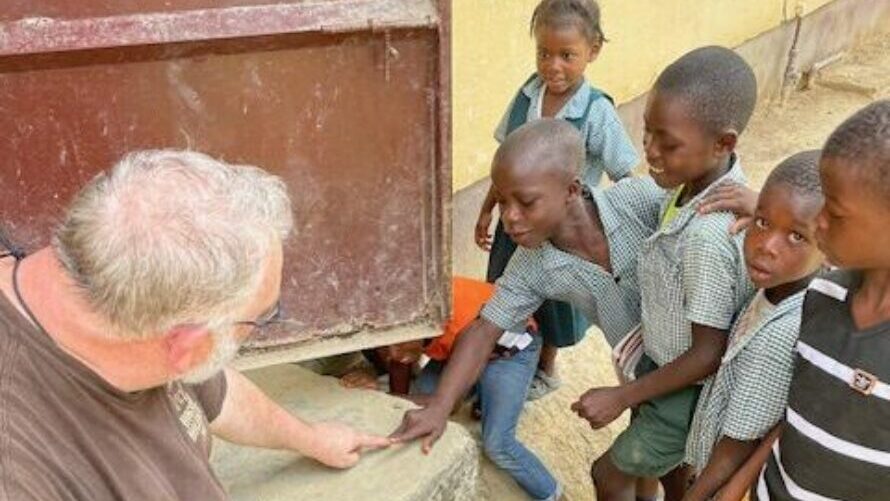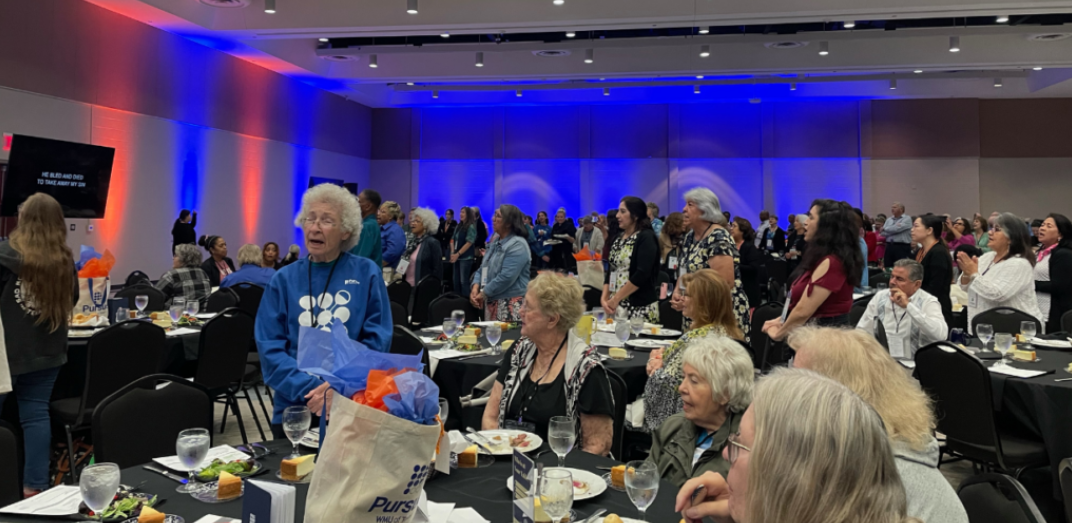If you submitted a movie script with all the elements of the past six years in Marybeth Slabbert’s life to a Hollywood producer, it would certainly get rejected. Many might see it as implausible — and there’s no airbrushed happy ending.
The story has the highs of adding three new children to the family, the tough days when doctors diagnosed two of them with life-changing disabilities and the excitement and the struggles that come with a move across the country to plant a church in one of the most remote areas of the continental United States.
Slabbert, whose family moved from North Carolina to Wyoming to plant a church in 2015, notes that while every story is unique, the story of her family’s experience isn’t alone in its expression of both highs and lows. Many of her fellow church planter wives in the state can tell similar stories.
“When we all got together, we all just looked at each other, knowing this is really hard. This is really, really hard,” Slabbert said. “And the one thing we share is that we don’t all have happy stories, and it’s the reality of what we’re living in right now. That’s the reality of what it’s like to pick up your cross. It’s not sad; it’s joyful. Beyond a shadow of a doubt, we know this is what God has called us to do. Otherwise, it’d be so easy to go home.”
When God first called Slabbert into missions around age 15, the West Virginia pastor’s daughter pictured what many others think when considering missions — somewhere remote and outside of the United States.
“I always thought international missions,” Slabbert said. “To me, the biggest thing was to go where the name of Jesus was not heard. I always thought maybe God would send me somewhere in the 10/40 window. I just really wanted to go somewhere where people didn’t know about Jesus.”
But then she met Johannes Slabbert on a blind date and later married him. Just a few years earlier, he had immigrated to the United States from South Africa. He was not a follower of Christ and had no interest in leaving the United States now that he was here. So Slabbert put her dream of sharing the gospel among people who have never heard on the shelf.
Life change
Over the next few years, God radically transformed Johannes’ life.
Not only did her husband come to faith in Christ, but God called him into ministry. A Christmas-dinner conversation in 2014 with Slabbert’s brother helped spur a call to plant a church in Wyoming, where Johannes could leverage his deep experience in training horses to help share the gospel in a mostly rural and unreached state.
In 2015, the family’s church, Bald Mountain Baptist Church in West Jefferson, North Carolina, sent them to plant a church in Cowley, Wyoming, a small town of around 600 people and no evangelical church.
They knew the task would be hard and set a goal of starting a small Bible study in their first five years in town.
When Slabbert and her family arrived in Wyoming for Johannes to begin his work as an apprentice for a church in Casper, she was already pregnant with baby number four — and a snowstorm forced Slabbert to give birth to Joshua at home rather than a hospital.
Right away, the family noticed problems with the baby boy’s breathing, but the doctors believed it wasn’t serious. Six months later, when Joshua became seriously ill, the family discovered he had a rare defect involving the vessels of his heart. Because his aorta was wrapped around his windpipes, he would need surgery. Although the surgery went well, it didn’t solve the problem. Over the next few years, the situation deteriorated.
At age 3, Joshua’s doctors discovered the problem. As he was getting bigger, his aorta was choking him. The doctors had never seen a condition like Joshua’s. They told the Slabberts their son would have a poor quality of life and likely wouldn’t live long.
“We had heard the worst news, and we took to Facebook and asked everybody to pray; pray for a miracle,” Slabbert said.
But a few days later, the heart surgeon called the Slabberts. The doctor told them, “You know, I sit here thinking about my children and how I just can’t believe that there’s not anything we can do for this child. I want to find a way.”
Before Joshua was born, God was at work preparing that way. When the family lived in North Carolina, Slabbert worked for Samaritan’s Purse and helped with the Children’s Heart Project, a ministry that arranges for critical cardiac surgery for children around the world. She was able to connect with some of the most faithful and skillful Christian heart surgeons in the world. All of them said the same thing: this is a rare condition. Still, no one would operate.
Experimental surgery
But the Slabberts kept praying for a miracle.
One day, Joshua’s heart surgeon in Denver happened to read a medical journal article describing a similar case where an experimental surgery led to positive results. The Slabberts agreed to let Joshua go through the eight-hour surgery. Doctors called the surgery a miracle.
But now, three years later, new problems are emerging. Another life-saving surgery may be on the horizon.
While the family walked through Joshua’s condition, Slabbert was pregnant again. About a month after Joshua’s surgery, she noticed the baby, Billy, wasn’t moving. Discovering there was a problem, the doctors delivered him immediately. They found that he wasn’t getting enough oxygen and had cerebral palsy.
Now the Slabberts had to navigate the severe medical needs of two children in rural Wyoming, where the necessary hospitals were hours away. Soon after Billy’s birth, the family added child number six, adopting a friend of the family who didn’t have a home.
“Since we said ‘yes’ to the call, it has truly been the trials of a lifetime,” Slabbert said.
Unexpected growth
As the family walked through these trials, God was at work in their church plant.
Despite the early belief that it would take five years to even get a Bible study going in Cowley, where no other evangelical churches were located, God moved ahead of schedule. When they arrived in town, they discovered people in town had been praying for a church for years.
Even during the pandemic, the church grew — nearly doubling in the time they couldn’t meet. Throughout the church’s growth and the family upheaval, Slabbert has continued to serve at the church plant alongside her husband, serving as part of the worship team, the children’s ministry director, co-youth leader and the women’s ministry leader at different times. With the unique pressures on her family, Slabbert has occasionally had to step back from her ministry responsibilities. But, she says, God has used those times to prepare others to serve in her place.
Slabbert has also seen God use her story to encourage other women in her community.
She tells the story of one woman she met at a park in one of her darkest days with her children’s health. She built a relationship with the woman at the park that day and has now seen a radical transformation in her friend’s life through the gospel.
“I don’t always have a good outcome at the end of my story,” Slabbert said. “My children haven’t been totally healed, but I just try to be real, to tell people, ‘It’s hard, but I know God hasn’t called us away yet.’ We’re supposed to be here.”
Slabbert asks Southern Baptists to not just pray for her family, but for all the families of church planters in Wyoming.
“Many of them are really struggling,” Slabbert said. “They really need prayer. They often feel like they’re in the shadows. We kind of struggle in silence. Whereas our husbands are out there and fighting a more public battle, ours is in private. We often don’t talk about our needs.”
EDITOR’S NOTE — This story was originally written by Tobin Perry and published by North Carolina’s Biblical Recorder.

